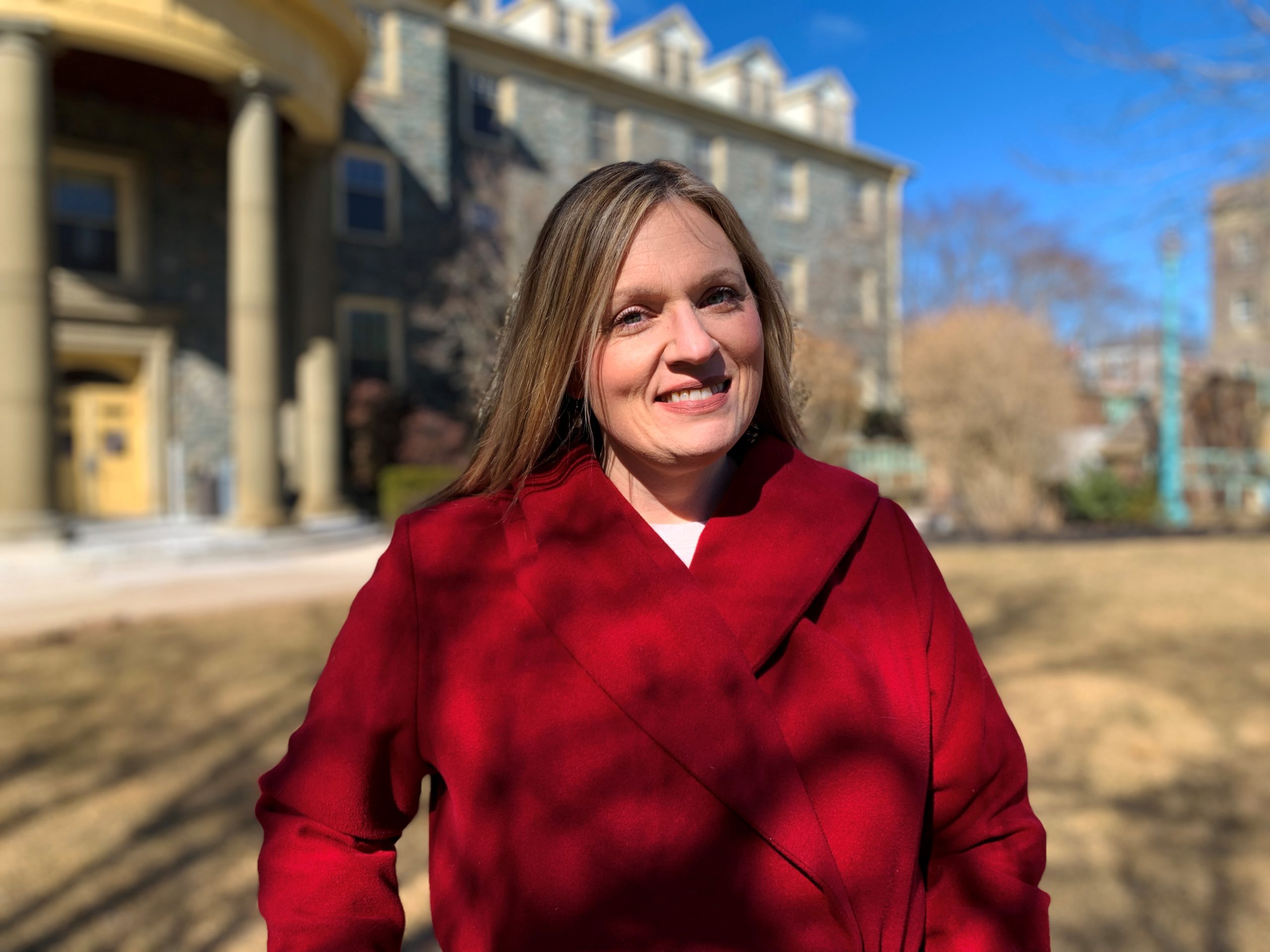Halifax woman’s non-profit offers support for people with premenstrual disorders
International Association for Premenstrual Disorders (IAPMD) has just started providing live peer support sessions for people locally and around the globe

caption
IAPMD’s executive director Sandi MacDonald poses for her portrait at the University of King’s College in Halifax on March 16, 2021.When Halifax City Hall lights up in the colour teal tonight to recognize Premenstrual Dysphoric Disorder (PMDD), it will be a special moment for one local woman.
Halifax resident Sandi MacDonald is the co-founder and executive director of the International
Association for Premenstrual Disorders (IAPMD). The global organization helps those with
premenstrual disorders, and recently launched its first live support groups.
MacDonald said in an interview that the groups are intended to provide peer support to women, and assigned female at birth (AFAB) individuals, who have Premenstrual Dysphoric Disorder (PMDD) or Premenstrual Exacerbation (PME).
“I was suffering a lot, and I probably suffered since I was a teenager – probably since I started
bleeding,” MacDonald said. “I just was going through different doctors and trying to figure out what was wrong with me.”
PMDD affects one out of every 20 women, including MacDonald.
Premenstrual disorders
PMDD was deemed a psychological disorder in 2013.
Chair of the IAPMD’s clinical advisory board and assistant professor at the University of Illinois
at Chicago, Dr. Tory Eisenlohr-Moul, studies the interaction of the brain and the reproductive
system.
“So PMDD is an abnormal response to normal hormone changes, that causes emotional
symptoms in the luteal phase of the menstrual cycle,” Eisenlohr-Moul said in an interview. “So
between ovulation and the next bleed, that then go away by the end of menses.”
PMDD is similar to PMS, but has added components that can severely affect your everyday life,
MacDonald said. PME on the other hand, is the exacerbation of an underlying disorder that also
occurs during the luteal phase.
‘These people are just like me’
Everything would worsen around her menstrual cycle, MacDonald said, causing her to have
horrible feelings in the luteal phase.
“I started Googling PMDD, and after I read about it, I was like, ‘Wow, this really sounds like
me.’”
MacDonald said after that aha moment in 2013, she began looking for other women with her
disorder. She eventually came across a Facebook group for PMDD moms.
“I just had this lightbulb moment of ‘Oh my God, I found my people! These people are just like
me,’” MacDonald said.
There, MacDonald met her co-founder Amanda LaFleur, and the pair bonded over similar
experiences.
“And so, you know, we just started talking about ‘Let’s do this, let’s start a peer support
program,’” she said. “So that’s what we did.”
The program eventually became an American non-profit, founded in 2013 under the name the
National Association for Premenstrual Dysphoric Disorder (NAPMDD) and became the IAPMD
in 2018.
MacDonald runs the peer support program and trains the group facilitators. So far, feedback has been great, she said.
Eisenlohr-Moul said education by peers can reduce stress, shame, and feelings of isolation for PMDD sufferers.
“To help people feel like, ‘This is just a thing that I’m struggling with, and a lot of people
struggle with it, and I’m not alone. I’m not a bad person, or crazy or something because I have
this disorder,’” Eisenlohr-Moul said.
As for PMDD treatments, about 60 to 70 per cent of people have benefited from Selective
Serotonin Reuptake Inhibitors (SSRIs), Eisenlohr-Moul said. Serotonin is a molecule in the brain
important for mood. SSRIs work to reverse abnormal serotonin function in PMDD patients,
however, they don’t work for everyone.
There is no cookie-cutter treatment for PMDD.
“We are all chemically different and we are all culturally different,” MacDonald said.
MacDonald said she thinks research and awareness surrounding premenstrual disorders is quite minimal, but that things are slowly starting to improve.
“This year has been quite amazing,” MacDonald said, noting that the IAPMD recently received a
grant through the organization, PCORI, which is a patient-centered research study.
Eisenlohr-Moul said the PCORI project brings patient voices to the table. Instead of just offering
support, it’s an opportunity to change the medical system to better serve those with premenstrual disorders.
Seven IAPMD video peer support groups run throughout each week on the chat app Hey Peers,
and sufferers can register from anywhere in the world. In an attempt to keep support more
intimate the groups are capped at 10 people.
The city of Halifax is also recognizing PMDD for the first time tonight, April 7, when Halifax
City Hall lights up teal for PMDD awareness month.
About the author
Ella Macdonald
Ella Macdonald (she/her) is an aspiring video reporter and photojournalist with an interest in world affairs and health reporting. Originally...
